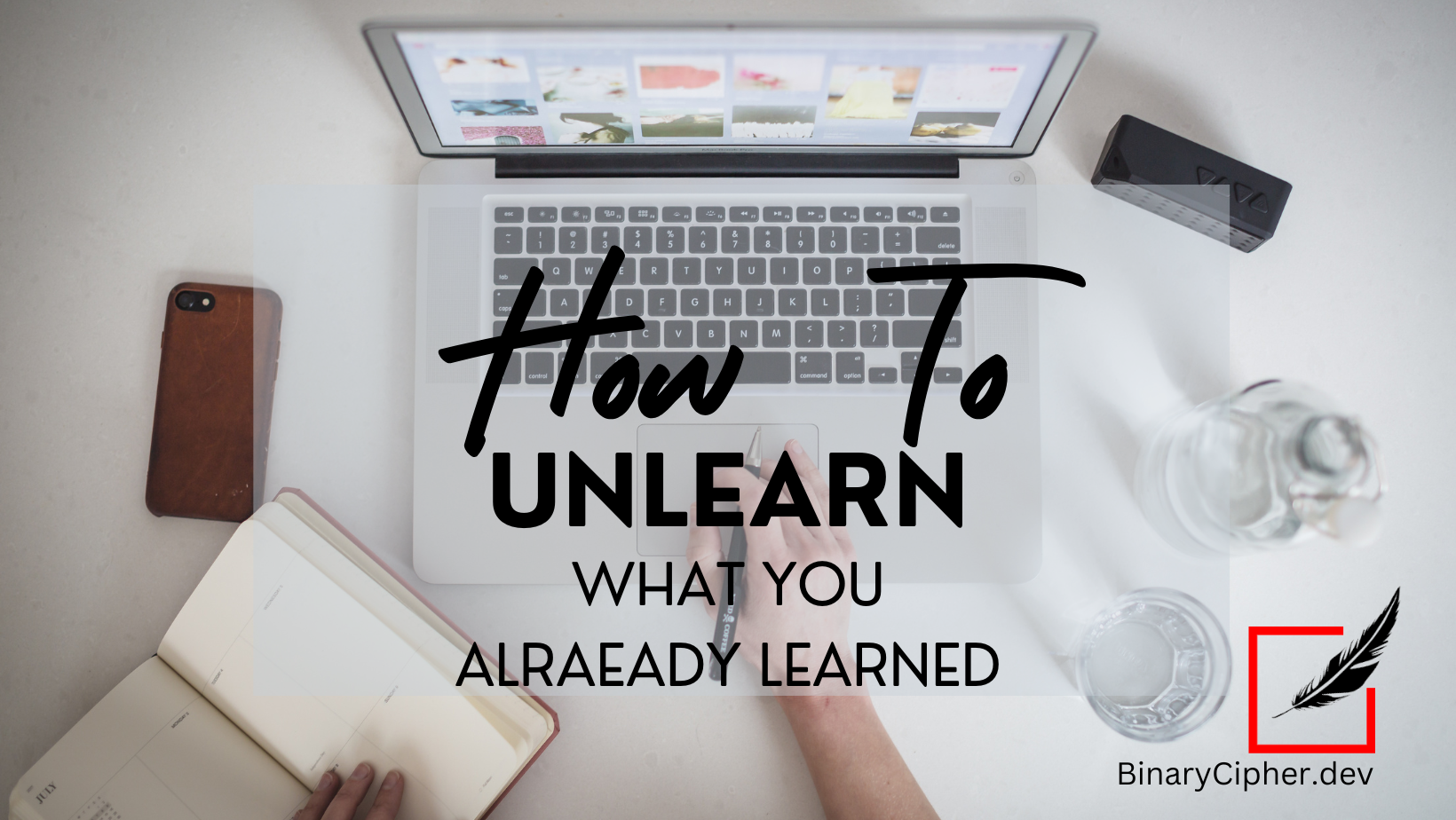
How to unlearn and how is it different from learning?
To unlearn something, you need to actively identify and challenge the assumptions, beliefs, and habits that underlie that knowledge or skill, and to replace them with new and more accurate or useful information. Here are some steps that you can follow to unlearn something:
- Identify the knowledge or skill that you want to unlearn. This could be a belief, an assumption, a habit, or any other piece of information or behavior that you want to change.
- Reflect on the reasons why you want to unlearn this knowledge or skill. What are the negative consequences or limitations of this knowledge or skill? How does it interfere with your goals or values?
- Challenge the assumptions and beliefs that underlie this knowledge or skill. What evidence or experiences do you have that support or contradict these assumptions or beliefs? Are there alternative explanations or perspectives that you could consider?
- Seek out new information or perspectives that contradict or expand on the knowledge or skill that you want to unlearn. This could involve reading books or articles, attending workshops or seminars, talking to experts or mentors, or conducting experiments or research.
- Practice using new information or perspectives to replace the old knowledge or skill. This could involve setting specific goals or challenges, experimenting with different approaches, or seeking feedback and support from others.
- Reflect on your progress and continue to challenge and update the knowledge or skill that you want to unlearn. This could involve regularly reviewing your assumptions and beliefs, seeking out new information or perspectives, and practicing and refining the new knowledge or skill.
By following these steps, you can actively unlearn knowledge or skills that are no longer useful or accurate, and replace them with new and more helpful information or behaviors.
What to unlearn?
There are many different skills that people may want to unlearn, depending on their individual goals and circumstances. Some common skills that people may want to unlearn include the following:
- Negative thinking patterns or behaviors, such as pessimism, anxiety, or procrastination, that interfere with their ability to think clearly or take action.
- Unhelpful habits or routines, such as eating junk food, smoking, or using social media excessively, that interfere with their health or well-being.
- Unproductive or counterproductive work habits or practices, such as multitasking, micromanaging or avoiding conflict, that interfere with their ability to be productive or effective.
- Social or interpersonal skills, such as assertiveness, empathy, or communication, are outdated or inadequate for their current needs or relationships.
- Technical or professional skills, such as programming languages, design tools, or management techniques, are no longer relevant or useful for their current roles or goals.
By identifying and unlearning these skills, people can free themselves from the negative effects of outdated or unhelpful knowledge or behaviors, and develop new and more effective skills that support their goals and values.
 Binary Cipher
Binary Cipher